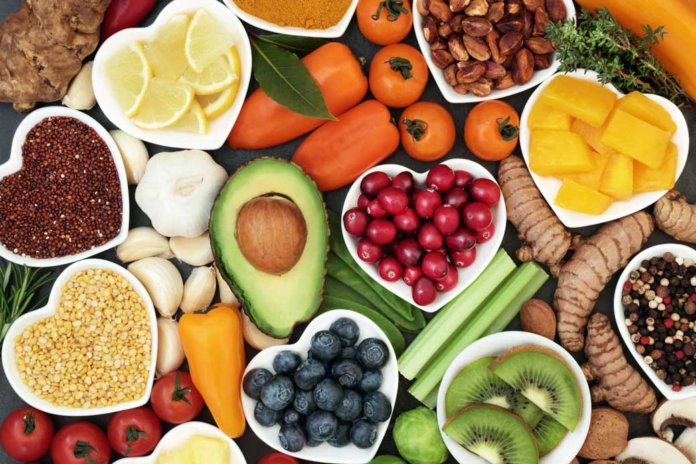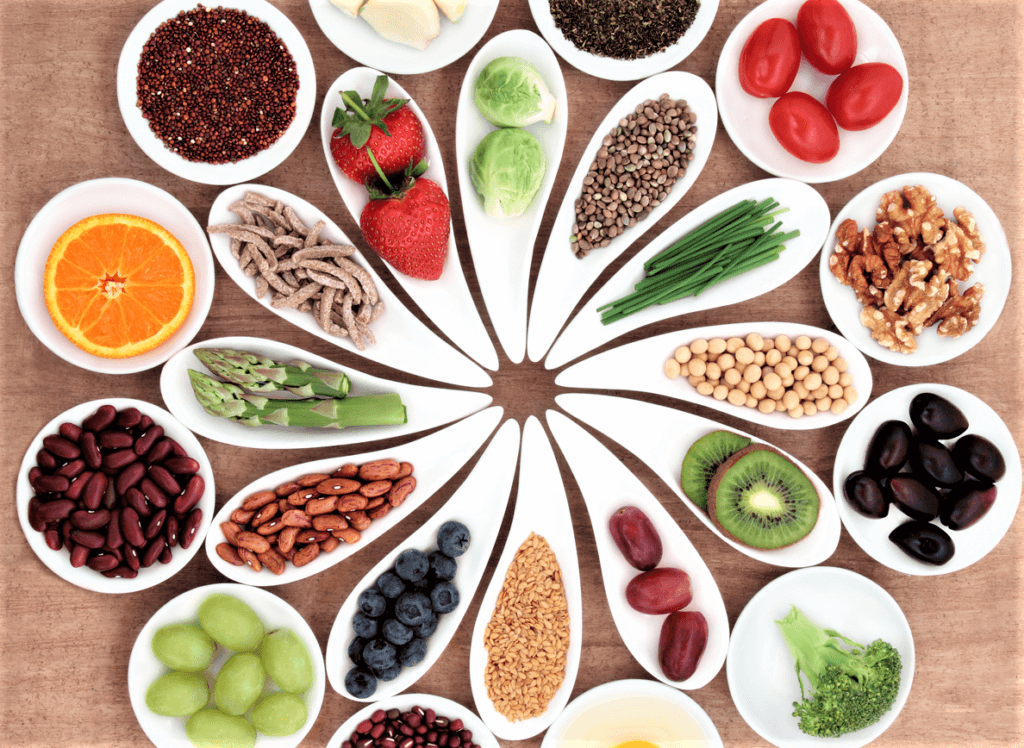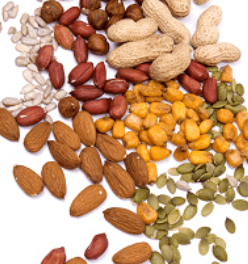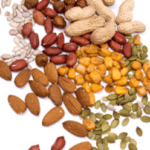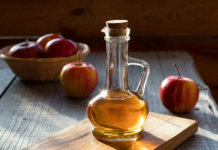Phytosterols…
Many of us Battle with the Bodily-Weight and Health-Issues; dreading the morning Weigh-Ins, or possibly, knowing far too well the likely restrictions that may pop-up during the Day.
All together now, the experts are acknowledging that our selected foods can considerably impact both our immediate health; along with our long term Disease-Risk.
The Suggestions have undoubtedly all been heard before…
- Eat The Healthy, Colorful Diet…
- Watch Your Weight…
- Increase Your Physical-Activity…
The first step One should actually do for themselves concerning their individual Weightloss and Wellness Goals is, to ask themselves a few Questions.
One of which is…
“Are the foods I choose Quality and Nutrient-Rich?”
The nutrients within our foods are needed by the Body; for the Maintenance, Repair, and Growth of our structure.
Whether for Maturity or as we grow older in age, for any of the Muscular-Adaptations and repair needed from our Activities or Strength-Training Practices.
We can throw in here too, for the management of any of those Oxidizing-Chemicals, the regulations of our Biochemical-Reactions, and for the supply of our Energy.
Life certainly, would not be very imaginable for us without the nourishment of our foods. Therefore, the health of one’s time here can considerably be dependant on which meals they are choosing to consume…
Plant-Based Foods…
- Fruits
- Vegetables
- Nuts
- Whole grains
- Natural vegetable oils
You can surely trust that throughout Human-Evolution there have been large amounts of Plant-Foods consumed.
Diets rich in Fiber, as well, Plant-Protein. Ancestral Diets that are also rich in a group of naturally occurring compounds that can be found within the Plant-Cellular-Membranes.
Phytosterols…
Sterols are necessary for all Eukaryotic-Cells.
Eukaryotic… referring to the Cells that are having an enclosed Nucleus within a Membrane…
As above mentioned these Plant-Sterols are a natural part of the Plant-Cellular Membranes; functioning to regulate membrane fluidity and permeability.
Phytosterols also help within the control of the operations of the cellular membrane-bound Enzymes ~ the Protein Catalysts that speed up the Plant cellular biochemical reactions.
Plant-Steriods assist the plant cell in cellular adaptations. Helping to cause cellular gene expression from the received environmental signals; promoting the plant cell to better handle temperature changes and the necessary immunity against any pathogen attack.
Actually, having roles that are similar to that of Cholesterol within us humans…
Originally discovered in the earlier 1950s…
These Plants-Sterols not only function comparable to that of Cholesterol in us humans and animals, but the arrangement is also comparable to the Cholesterol formation.
In us Humans as well as, animals Cholesterol is the dominating Sterol; however, a variety of the Phytosterols can be found in the Plants.
Cholesterol…
Circulating within your blood Cholesterol is derived from our Diet. However, almost every tissue within the Body can produce Cholesterol. Notably, the Liver, synthesized from Glucose and Fatty-Acids.
Cholesterol the waxy, fat-like substance that it is, plays many fundamental roles within every single cell that is in the body.
For the synthesis of many necessary Hormones that serve as command signals within cellular functions, Membrane functions… Cellular Membrane Stability, among so many other functions.
With the Physiological importance, however, comes the hazards.
Having an elevated level of circulating Cholesterol increases one’s risk for Heart-Disease and Stroke…
The Digestion of Cholesterol and Fats is complicated.
However, after chemical breakdown the monoglycerides, fatty acids, and phospholipids… all come to form what is called Micelles, which are the newly formed fat-droplets… from which the Cholesterol and the Fat-Soluble-Vitamins are all incorporated into.
These Micelles are important, to say the least, the Phosphate-heads of the Phospholipids go forth to surround the poorly water-soluble monoglycerides and fatty-acids ~ for the assistance in their transport towards the absorbing Intestinal Enterocyte… we can just call them the absorptive cells. Once absorbed and within the Enterocyte, all become re-synthesized into the Chylomicrons, the first Lipoprotein…
Phytosterols…
As above mentioned, the Phytosterol structure is very comparable to that of Cholesterol; therefore they have an ability to interfere with the Absorption of the Dietary Cholesterol ~ into those Micelles. Simply, there is the displacement of the Cholesterol.
However, once absorbed it is believed that the Phytosterols are eliminated back out into the Intestinal Lumen… The Hollow Intestinal Cavity, with the following excretion or elimination from the Body following; as the circulating Blood levels of the Phant-sterols, appears to remain low.
It is easy to see, now with some understanding, that when you happen to consume the Phytosterols and Cholesterol together there is a bit of a competition for absorption into those Micelles, from the Intestinal Lumen ~ which is what is helping to lower the Blood Cholesterol Circulating levels.
With this competition to now excretion, this also keeps the Phytosterol Blood Levels low… All of this, therefore, results in the lowering of the Blood Sterol Levels.
The Cholesterol lowering abilities of the Plant-Sterols has become well documented now and is basically accepted and confirmed with the Expert Scientists. Needless to say, after much Scientific Debate as well as Study.
Phytosterols … Originally became examined for their Cholesterol Inhibition Properties as they have that similar structure; newer findings are suggesting the Plant-Sterols possibly own additional properties, such as…
Food Sources…
- Unrefined Plant-Oils; Corn, Soybean, Nut, Olive-Oils, Wheat Germ Oil…
- Nuts…
- Sesame Seeds, Seeds…
- Whole-Grains…
- Legumes…
- Oranges, Figs…
Nuts & Seeds…
Once regarded as Unhealthy… actually for their High-Fat content; now the opposite appears to be true… Dubbed a Dried-Fruit ~ formed by a Hard outer Shell and a Seed, all which is generally Edible… A variety of Seeds are referred to as Nuts.
The most attractive are the Almonds, Hazelnuts, Walnuts, Pistachios, Cashews, Pecans, Macadamias, Brazil Nuts… All of which are Nutrient-Dense and regular elements of the Human-Diet since ancient pre-agricultural periods.
I do hope that I mentioned one of your favorites… Because the determining research has been conducted on the healthful benefits of consuming Nuts, for a couple of decades now.
Consumed for the snack, desserts, Salad-toppings, or just eaten whole, whether roasted or fresh, Spread as Nut-Butters, or as the oils mixed within dishes, sauces, and baked goods.
Nuts are a Cholesterol-Free-Food, but they are containing notable amounts of the chemically related Phytosterols; that group of Plant compounds that are comparable to the Human Cholesterol; that go onto compete for absorption into those Micelles, those enzymatically altered fat-droplets produced after digestion ~ that assists in the transportation of the poorly water-soluble lipids towards the absorbing Intestinal Enterocyte.
The additional benefits of these so-called “Dried-Fruits”, formed by the Hard outer Shell and a Seed” have an Optimal-Nutritional-Density they sure do.
Matched to other common foods, Nuts have a notable amount of the specifically Healthy Minerals… including… Calcium, Magnesium, and Potassium… Importantly here, with a low Sodium Content…
I must inject here that, a high intake of those minerals… the Calcium, Magnesium, and Potassium with that low Sodium intake is associated with protection against Bone-Demineralization, Arterial Hypertension, Insulin Resistance…
Basically, One’s overall Cardiovascular risk.
However, this beneficial protection of the Nuts on our Cardiovascular risk is clearly lost if you chose to consume a salted product.
It is the particular Lipid\Fat content of these Nuts with the Walnuts, in particular, that is offering beneficial health influences with their frequent consumption…
Educational Purposes
For Your Viewing Resources & documentation
https://en.wikipedia.org/wiki/Oxidative_stress
https://en.wikipedia.org/wiki/Adenosine_triphosphate
https://academic.oup.com/qjmed/article/104/4/301/1564053
https://en.wikipedia.org/wiki/Cholesterol
https://courses.washington.edu/conj/bess/fats/fats.html
https://en.wikipedia.org/wiki/Lipoprotein
https://www.nature.com/articles/ejcn200929
https://www.tandfonline.com/doi/pdf/10.2217/17460875.3.3.301
https://www.ncbi.nlm.nih.gov/pubmed/29932029
https://www.ncbi.nlm.nih.gov/pmc/articles/PMC3257681

